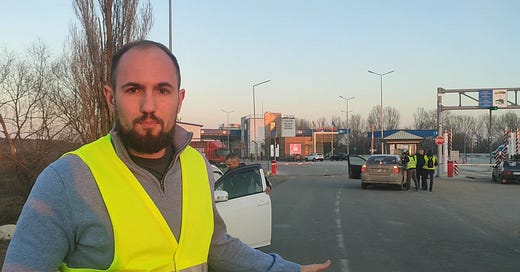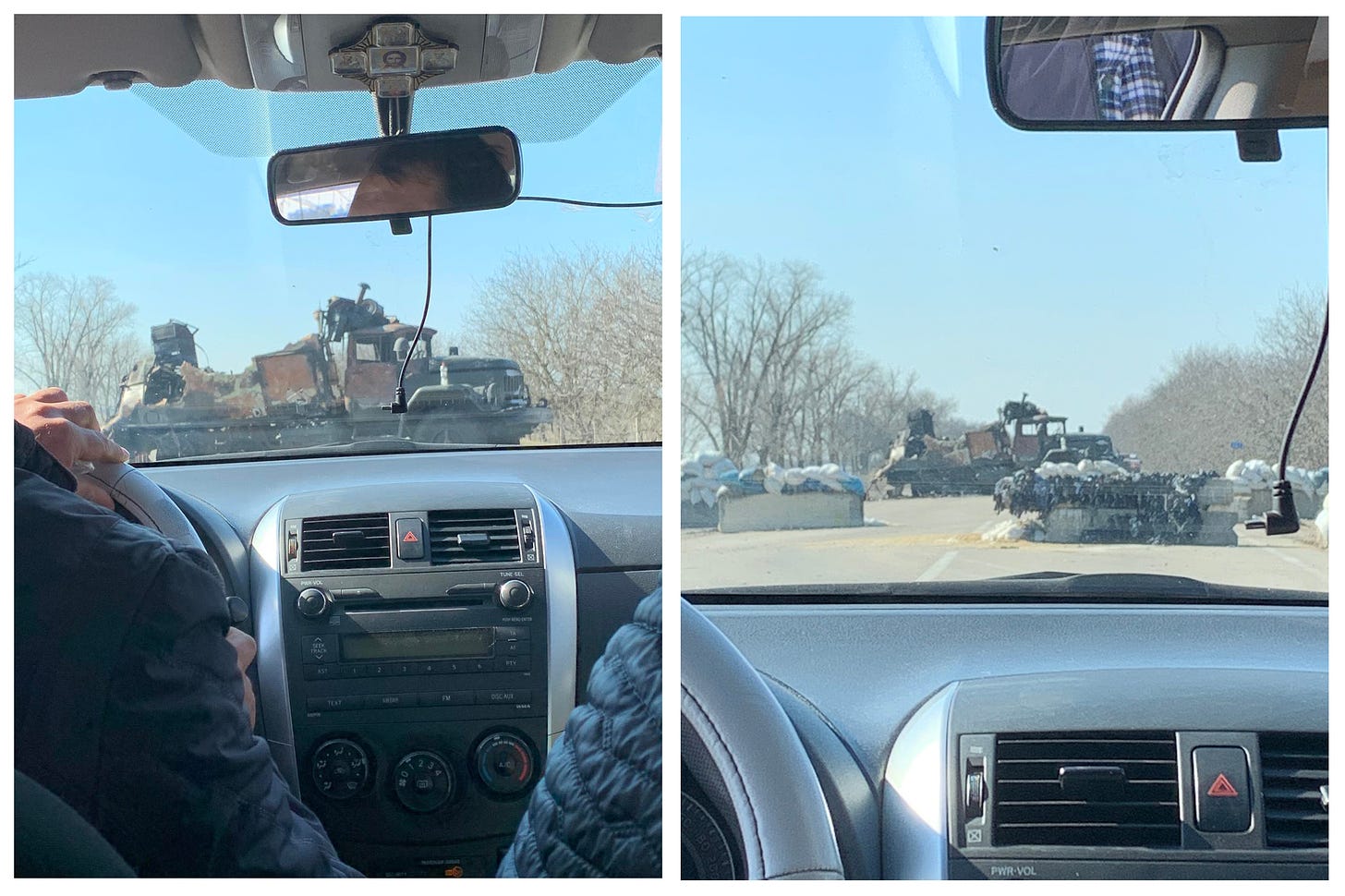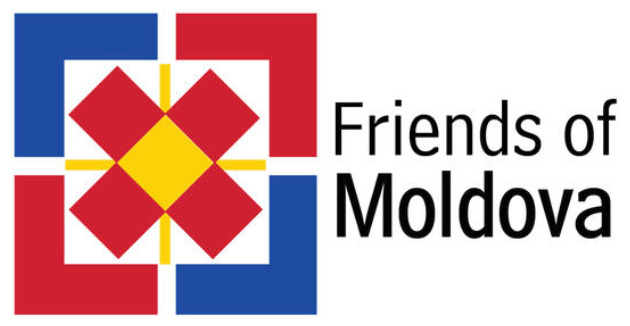I boarded a flight to Milan where my friend Benjamin was picking me up. We planned to drive to the Republic of Moldova from France. We had three days before the start of our road trip to reconsider our decision of going to help with the volunteer effort. Many thoughts crossed my mind: enormous lines at the border; Moldova being the next target; and crowds of Ukrainians in the streets of Chișinău, Moldova’s capital.
We arrived at the border on March 20th, at 2 am. We both took a deep breath and continued on. It felt good to be back in Moldova.
The next day, I went to Smokehouse to see what the situation was like on the ground, as well as to meet Ukrainian refugees face to face. I was worried I wouldn’t be put to good use and that there wouldn’t be enough work for me to do. I couldn’t have been more wrong. There was a line of people waiting at the entrance of Smokehouse before it opened at 10 am. As soon as the doors were unlocked there was a non-stop flow of people passing through the former restaurant to pick up hygiene products, food, and clothes. It felt like I dived right into the heart of the Moldovan support effort.
I spoke to women from Kharkiv, Odessa, Kyiv, and more heavily bombarded places such as Bucha and Irpin. I was faced with the tragedy of the war head-on. A grandmother began to tear up when I asked her where she was from. I gave her a hug. Never had I felt so powerless to help someone. Providing mere food or hygiene products felt like nothing compared to what they had lost. However, I didn’t have time to think, let alone feel. The next person was eagerly waiting in line to get food. And so it went. 2 pm arrived and I barely noticed.
My friend, and now my partner in the Ukraine refugee relief effort, Budulai, had come to Chișinău from the Palanca border crossing to pick me up. He wanted to show me what he was doing at the border, and I was eager to shadow him. As we drove to Palanca, he shared stories of the people he had met. He told me about an old man, weary-eyed, with sunken shoulders. He told me how he offered him a cup of hot tea and the man’s soul lit up; from such a small gesture, the man was reminded of his humanity. There were many stories like these. One thing Budulai mentioned was that the only organizations genuinely helping at the border in those early days were Churches. Even the local police were asking for coffee and food from them at their tents.
I didn’t know what to expect from the border. I had heard about the 27+ hour-long wait times, enormous crowds, etc. When we arrived, however, it felt unnaturally calm, chilling even. A country devastated by war was just meters ahead of me. I saw women walking across the border, their suitcases rolling behind them. Before I had time to absorb anything, I was taken to the bus station 5 km from the border, where transport was supposedly arranged for Ukrainians to Chisinau and Romania.
As we pulled up, I saw many tents, under which volunteers offered tea, coffee, and biscuits. As Budulai had said, they were indeed all from church organizations. The only UNHCR logo I saw was a sticker on the side of a bus, as well as on some gas heaters by the tents. Just as I was taking in the surroundings, a volunteer approached us and said that a family of twelve needed to go to Orhei, a town about three hours north. They needed two drivers. Budulai immediately volunteered me to drive his car, while he drove another one. I’d heard people talk about getting sucked into events as volunteers, but I never imagined it to be so literal. In less than a day I was already responsible for driving a Ukrainian family (who had come from Nikolaev) to Orhei. Three women and four children were assigned to the car I was driving. Budulai was tasked with driving the family’s car; their driver, the grandfather, couldn’t see well at night.
Still new to what was going on, I didn’t notice how afraid the family was. I knew I was a good person, and Budulai as well, so the thought that the family might feel threatened by us never crossed my mind. We drove them calmly towards Causeni, where there was a church that served as a pit stop for refugees. There they would receive food, have their tanks filled up, and could spend the night if they wanted.
By the time we arrived, it was dark. Even though there were other cars with Ukrainian plates in the parking lot, the family refused to get out of the car. I was taken aback. Budulai’s passengers, a woman, a grandmother, and the grandfather, also refused to leave their vehicle. It was at that moment I understood just how petrified they were. They just wanted to get to Orhei where a Moldovan family they knew would meet them. They had nothing else on their mind aside from their final destination. Despite explaining to them that there was food and a warm place for them, they anxiously asked us to keep going. Budulai and I obliged.
Since they were so intent on getting to Orhei as quickly as possible, we decided to go straight from Causeni to Orhei, bypassing Chisinau. We thought it would be faster that way.
After around an hour, we stopped at a gas station to fill up our tanks. The women and children got out and grabbed bags of junk food by the handful. They were obviously starving and understandably trusted a gas station more than us. When we continued, I tried to entertain the kids in the car by sharing jokes, anecdotes, and riddles. For about 30 minutes, the tension lessened.
Google maps directed us to cut through a village to reach a highway. Unfortunately, in Moldova Google maps isn’t always accurate and it led us into the middle of nowhere. It was 10 pm, dark, our passengers were scared, and we were lost. I knew the women were afraid that Budulai and I were potential human traffickers. Their fear was palpable. I also wanted to get the hell out of this village in the middle of nowhere and back to civilization so that they wouldn’t be so afraid. We kept stopping, checking the map, debating on the right road, driving for a few minutes on the dirt roads, then stopping again. Over and over again. Everyone grew impatient.
Eventually, we reached a road that was so bad that Budulai, who was in the lead car, could no longer continue, so we turned around. We had the choice of attempting another few kilometers through the village to get to the highway (according to Google maps) or turn back down the road we just took and head towards Chisinau (effectively prolonging the trip an additional hour). We decided to risk taking the shortcut. Google Maps was, of course, inaccurate, and led us into a field that had some tracks on it. We continued on, and I could see cars driving down the hill below us on the pavement. I was praying in my head for the path to lead to a paved road.
‘If we can just get on the paved road, we’ll find a way to Orhei. These poor people must be convinced that we are taking them to some warehouse to be trafficked.’ I thought.
The dirt path in the field swerved to the left, and we were going parallel to the highway.
Please, please connect with the highway. For the love of God let us get back on pavement.
The headlights of the car were not bright enough to see ahead, and the longer the road continued straight, the more anxious I grew. Finally, the road turned to the right, and it soon connected to the highway.
Thank God.
Back on the pavement, I could sense the atmosphere in the car was one of relief. Soon signs indicating Orhei was just 30 km away appeared, and eventually, there was a large sign showing that we had entered the Orhei Raion. The passengers likely still didn’t trust us, but they probably felt a little better knowing we were heading in the right direction.
Around midnight, we finally arrived at our destination and a Moldovan family came outside to greet them. Budulai asked them, “Be honest, did you think at any point that we were going to take you somewhere else?” They timidly answered yes. The women and children went inside the house and we didn’t see them again, but the grandfather stayed to chat with us over tea and coffee. He spoke about the 750 kg bomb that didn’t explode near their property. Though I didn’t know it yet, I would end up meeting several people with similar stories of 500-750 kg duds landing in their yards. The grandfather spoke about the fear they lived with for nearly a month, and how he hadn’t slept in weeks.
Unfortunately, we couldn’t stay for long, we had a 2-hour drive back to Causeni where we would spend the night. The grandfather offered us $100 several times. He even tried to slip it into my pocket. When we refused to accept his money, his eyes teared up. He couldn’t believe that people in Moldova could not only be trusted, but were so open to helping. We hugged him farewell and he walked us out to our car and waved until we turned the corner.
A week later, we heard from him again, and he sent us pictures of their home. He looked like he had finally slept. He said the children and family were so grateful for our help, and that they now felt safe with their hosts. They felt a sense of security for the first time since the war began, and they could finally breathe a real sigh of relief.
Their new life was just beginning.
If you want to support Bartosz and his work you can make a donation to Friends of Moldova.








Great story, Bartosz. Thanks for the honest accounting of helping in Moldova, with all of the uncertainties. Great job.